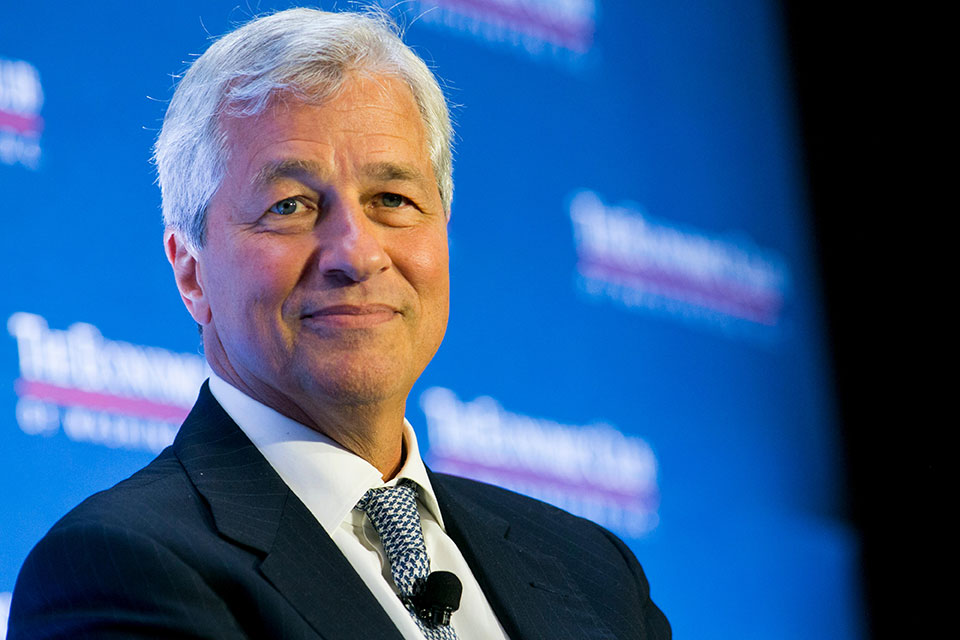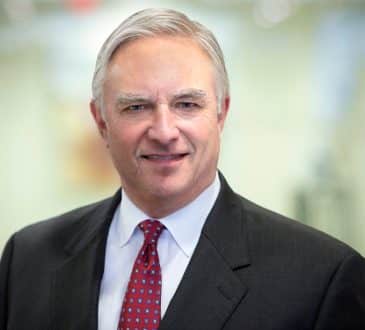Meet The World’s Most Powerful Banker: Jamie Dimon, CEO Of JPMorgan Chase

Establishing and growing a successful business organization requires the collaboration of various aspects. Some of these elements include but are not limited to proper financing, great strategies and ideas, and passionate employees. However, leadership is very crucial to ensure the appropriate management and mix of these elements. In addition, leadership entails guiding and supporting others to work passionately towards achieving the target goals and objectives. Jamie Dimon, one of the most famous and intelligent leaders, has played a crucial role in the success of J.P. Morgan. Notably, Jamie Dimon is the CEO of the company, and over the years, he has transformed it into one of the world’s largest and most renowned banks.
It is significant to review Dimon’s leadership theory to understand his strategies in surviving in the highly competitive business environment. Furthermore, the banking industry in the United States is subject to heavy regulatory oversight and high competition from domestic and foreign competitors. Despite the above constraints, J.P. Morgan Chase has a significant competitive advantage. Most of its success is credited to the CEO, Dimon, whose leadership strategies have steered the company towards the right direction. The traits and leadership behaviors are factors that differentiate between successful and unsuccessful leaders. Jamie Dimon is a successful CEO because he employs the characteristics of different leadership theories and styles (Chapman, 2020).
Transformational leadership
Leaders who utilize transformational leadership style inspire and encourage their followers to work beyond expectations to realize the organization’s overall success (Paracha et al., 2012). Notably, in his leadership at J.P. Morgan Chase, Dimon utilizes transformational leadership to bring significant change to employees and the system. Such leaders inspire their employees to accomplish organizational goals by inspiring and having faith in them to make relevant decisions and come up with unique ideas in the organization. Consequently, they promote a positive influence on subordinate workers and assist them acquire new skills and accomplish their career growth. Despite being the CEO of J.P. Morgan, Dimon has delegated various duties to his followers. Similarly, he gives his followers a chance to contribute to the decision-making process.
Dimon believes that employees should be involved in decision-making because the best decision results from engaging other people (Deutsch, 2006). Therefore, transformational leaders encourage sharing knowledge and ideas among employees in the organization. On the other hand, transformational leaders act as coaches, models, encouragers, and innovators. Thus improving the morale of employees, which results in improved performance. Similarly, Dimon has created a sense of belonging and loyalty among employees. A sense of belonging has a positive impact on employee retention rates. According to Raja and Palanichamy (2011), transformational leadership enhances job satisfaction. Dimon argues that the company’s ability to attract and retain the most talented and passionate employees is crucial for its long-term growth.
Dimon explains that the role of the top management of any business organization is not to come up with decisions but rather to ensure generation of the most appropriate choices (Finance Notes Team, 2020). Dimon holds meetings with employees and departmental managers to discuss concerns of operations and strategies to counter the issues facing the company. Through these meetings, he understands his followers’ needs and encourages them to achieve goals and objectives. Some of the measures employed by transformational leaders to facilitate achieving goals include offering training and educational services. At J.P. Morgan Chase, training programs entail mentorship and coaching to ensure that upcoming leaders are subjected to the personalized attention they need.
Traits of Jamie Dimon
Leadership traits comprise intellectual features that separate successful from unsuccessful leaders. Jamie Dimon’s qualities have helped him in his leadership as the CEO of J.P. Morgan Chase. Most traits are genetic and cannot be learned, unlike skills and behaviors. However, some of them can be acquired through dedication. Jamie Dimon has a strong level of personal drive. Dimon can focus on accomplishing the goals and objectives of J.P. Morgan Chase due to a strong sense of personal growth. Some of the goals and objectives that the company wishes to accomplish include but are not limited to continued growth, supporting green initiatives, and promoting sustainable development goals.
Dimon is one of the most charismatic leaders in the United States, known for creating strong confidence from employees, clients, and other company leaders. His ability to sketch a picture of the type of business he wishes to govern and principles guiding his work-life make followers confident about JPMorgan’s mission statement (Chapman, 2020). People regard him as a leader with a combination of different traits. His charismatic and inspiring traits evoke a sense of loyalty among his followers. In addition, his followers at JPMorgan are confident in his opinions and principles. Dimon’s interviews, actions, and his Annual Letters to Shareholders display great honesty and honor.
While all leaders have a personal drive, it takes influential leaders to have higher levels of personal drive. Dimon’s high personal drive is characterized by his strong determination and desire to achieve the goal of ensuring that J.P. Morgan Chase remains the Wall Street leader in financial services. On the other hand, he has strong willpower facilitated by his personal drive. Notably, willpower is a genetic trait; however, Karp (2014) argues that leaders may enhance their willpower by paying attention to their feelings and focusing on their energy and time management capabilities. Therefore, willpower is crucial in leadership, and every leader must develop and concentrate on their willpower.
Again, Dimon displays self-confidence in his leadership and management of his followers. According to Son (2022), the CEO said that he draws his credence from the solid balance sheet of the American consumer. In addition, confident leaders positively perceive the organization’s future. Jamie Dimon perceives that the United States is approaching the best economic growth. Self-confidence has helped Dimon to earn the trust and respect of his followers. The J.P. Morgan Chase stakeholders trust in their leader because they know he can steer them towards the desired direction. With self-confidence, He has boosted the morale of his followers, which has had a positive impact on their efficiency and performance.
According to Nichols (2016), a leader must be willing to take necessary risks to achieve personal and organizational goals and objectives. In an interview with Deutsch (2006), Dimon explains that as a leader, one must come up with many reasonable alternatives to test and try despite previous failures. “I always talk about good failures. A good failure is when you’ve really thought something through and you tried it and you tested it and it didn’t work” (Deutsch, 2006 p 58). In addition, self-confident leaders believe in themselves and make decisions without dithering. Dimon’s confidence has also helped him improve his skills and capabilities. Similarly, Dimon’s faith enables him to have the courage to communicate with employees and other stakeholders.
Jamie Dimon embodies a solid desire to lead. Willingness to lead is characterized by his capability to lead his followers and influence them. Moreover, his intense passion is evident in his ability to convince J.P. Morgan Chase employees to adopt his decisions and strategies towards achieving the company’s goals. An ideal leader should portray personal integrity. Dimon has cultivated and repeatedly affirmed the culture of integrity at JP Morgan. Therefore, acting with integrity is fundamental in every sector of the company. Commitment to high standards of integrity entails meeting the company’s expectations to all customers, employees, and shareholders (JPMorgan, n.d.). On the other hand, Dimon shows zero tolerance for unethical behavior among his followers. He behaves ethically and makes ethical decisions to act as an example to his followers.
Authentic leadership aims at ensuring that employees behave in the same way as their leaders. Notably, personal integrity and honesty traits create trusting relationships between leaders and employees (Nichols, 2016). According to Dimon, leaders should share everything with their employees to build a culture of trust. Fell (2017) argues that sharing essential information such as strategy, financial performance, and unique initiatives helps employees develop a sense of belonging to the team and feel that they can be trusted. Dimon explains that it is impossible to become better without sharing vital information with other stakeholders. Thus, transparency is the key to business success.
Behaviors and Skills of Jamie Dimon
Leadership behaviors and skills play a crucial role in determining an ideal leader. Moreover, leaders with good leadership skills and behaviors steer their organizations in the right direction. Leadership skills are categorized into technical skills, human skills, and conceptual skills. Technical skills comprise a leader’s capability in specific processes or knowledge in particular fields. Dimon has a robust academic background, having graduated from Tufts University and achieving MBA at Harvard’s business school. Academic qualifications distinguish a leader’s job performance at the professional level. Nevertheless, in leadership, technical skills are less critical than human skills and conceptual skills. Besides, leaders depend highly on the technical skills of their employees.
Dimon portrays excellent human skills in his leadership. Notably, these skills are demonstrated in a leader’s ability to work with his followers and create a strong team. Dimon motivates his followers to work hard to attain the organization’s goals and career goals. Moreover, Dimon ensures regular training and education of employees. These behaviors make him an excellent leader because regular training and education promote employees’ performance and efficiency. On the other hand, Dimon often communicates with his employees to give them feedback. Immediate feedback will help employees learn from their mistakes and determine what is working and what is not working. Therefore, it is possible to fix problems immediately.
Similarly, Dimon’s immediate feedback improves the working relationship with his followers. It is difficult for a leader to survive in the realm of leadership without appropriate human skills. Dimon demonstrates operational excellence by countering problems and concerns as they arise. He is quick and professional about looking for deviations to address issues. In his letter to shareholders, Dimon explained that JPMorgan would continue building branches to facilitate the company’s market expansion strategy (Dimon, 2018). Thus, Dimon’s conceptual skills help him work with long-term business plans, broad relationships, and models.
According to Fell (2017), Dimon values the importance of solving issues and conflicts immediately. Dimon believes that a leader should not avoid problems and disputes but deal with them as they occur. On the other hand, Dimon advises leaders on facilitating open communication across their organizations. According to him, there is no need to hold meetings if all stakeholders are not free to speak up their minds. Open communication helps Dimon identify some of the critical issues facing his followers.
Transactional Leadership Style
In 2000, Jamie Dimon helped salvage Bank One, already struggling in the United States banking industry. Dimon worked hard through appropriate strategies such as hiring experts, making tough decisions, and taking risks to transform the company. Later in 2004, Jamie Dimon was hired as the CEO of JPMorgan following its acquisition of Bank One (Hough et al., 2014). Despite heavy reliance on the transformative leadership style, Dimon also utilizes transaction leadership to motivate his followers to accomplish organizational goals and objectives. According to McCleskey (2014), transactional leaders promote dedication from employees through enforcing punishments and rewards. Transactional leadership style is associated with enhancing a company’s competitive advantage. Therefore, Dimon uses some elements of transactional leadership style to ensure the company remains the best in Wall Street and globally.
Dimon employs the system of rewards and punishments to keep his employees motivated. He uses the above approach, especially during crises and urgent projects that need implementation with immediate effect. Followers get rewards such as positive recognition, bonuses, and promotion when they meet specific goals and objectives of the company. Through such strategies, Dimon can accomplish his objectives and maintain the stability of JPMorgan. On the other hand, the leader subjects punishments to address employees’ poor performance. These punishments may include poor performance appraisal and demotion of employees in accordance with their contribution to the failure (Landis et al., 2014).
Conclusion
Outstanding leadership is a pivotal contributor to organizational success and profitability. Therefore, global companies must hire the best leaders to leverage from their excellent skills of mixing all factors that lead to maintaining their stability and growth. Jamie Dimon inspires not only his employees but also the entire world in the field of business. Leaders from other companies benchmark their skills to bring success and profit from their investment. In conclusion, it is essential to understand that applying various styles and theories of leadership is the key to business success, as demonstrated by Jamie Dimon.
References
Chapman, A. (2020). Analysis of Jamie Dimon: Impact of Leadership and Culture at J.P. Morgan Chase & Co. The University of New Hampshire. https://scholars.unh.edu/cgi/viewcontent.cgi?article=1516&context=honors
Deutsch, C. G. (2006). Building the global bank: An interview with Jamie Dimon. McKinsey Quarterly, 4, 50. http://www.theiafm.org/publications/48.pdf
Dimon, J. (2018). Letter to Shareholders from Jamie Dimon, Annual Report 2018. JPMorgan Chase & Co. https://reports.jpmorganchase.com/investor-relations/2018/ar-ceo-letters.htm?a
Finance Notes Team (2020, March 15). Leadership in JP Morgan. Finance~Notes. https://finance-notes.com/leadership-in-jp-morgan/
Fell, J. (2017). JPMorgan Chase BrandVoice: Leadership Lessons From The CEO Of JPMorgan Chase. Forbes. https://www.forbes.com/sites/jpmorganchase/2017/03/20/leadership-lessons-from-the-ceo-of-jpmorgan-chase/?sh=38703533379f
JPMorgan. (n.d.). HOW WE DO BUSINESS -THE REPORT. https://www.jpmorganchase.com/content/dam/jpmc/jpmorgan-chase-and-co/documents/How_We_Do_Business.pdf
Hough, M., Shulock, D., & Thanner, W. (2014). EXPLORING THE USE OF A COMPRESSED LIVE CASE STUDY MODEL (CLCS) TO ENHANCE STUDENT LEARNING AND ORGANIZATIONAL EFFECTIVENESS. Editorial Staff, 6.
https://www.researchgate.net/profile/Anna-Horodecka/publication/281110290_CONCEPTS_OF_HUMAN_NATURE_SOCIAL_EFFECTIVENESS_AND_COMMUNICATION_IN_THE_WORKPLACE_JBL/links/55d6077b08ae9d65948b58cf/CONCEPTS-OF-HUMAN-NATURE-SOCIAL-EFFECTIVENESS-AND-COMMUNICATION-IN-THE-WORKPLACE-JBL.pdf#page=218
Landis, E.A., Hill, D. and Harvey, M.R., 2014. A synthesis of leadership theories and styles.
Journal of Management Policy and Practice, 15(2), p.97. http://www.m.www.na-businesspress.com/JMPP/LandisEA_Web15_2_.pdf
Paracha, Qamar, A., Mirza, A., Waqas, I.-U.-H. (2012). Global Journal of Management and Business Research " Impact of Leadership Style (Transformational & Transactional Leadership) On Employee Performance & Mediating Role of Job Satisfaction " Study of Private School (Educator) In Pakistan.
Global Journal of Management and Business Research, XII Issue IV. https://globaljournals.org/GJMBR_Volume12/6-Impact-of-Leadership-Style-
Nichols, A. L. (2016). What do people desire in their leaders? The effect of leadership experience on desired leadership traits. Leadership & Organization Development
Journal, 37(5), 658–671. https://doi.org/10.1108/lodj-09-2014-0182
Son, H. (2022, January 10). Jamie Dimon sees the best economic growth in decades, more than 4 Fed rate hikes this year. CNBC. https://www.cnbc.com/2022/01/10/jamie-dimon-sees-the-best-economic-growth-in-decades-more-than-4-fed-rate-hikes-this-year.html
Add CEOWORLD magazine to your Google News feed.
Follow CEOWORLD magazine headlines on: Google News, LinkedIn, Twitter, and Facebook.
This report/news/ranking/statistics has been prepared only for general guidance on matters of interest and does not constitute professional advice. You should not act upon the information contained in this publication without obtaining specific professional advice. No representation or warranty (express or implied) is given as to the accuracy or completeness of the information contained in this publication, and, to the extent permitted by law, CEOWORLD magazine does not accept or assume any liability, responsibility or duty of care for any consequences of you or anyone else acting, or refraining to act, in reliance on the information contained in this publication or for any decision based on it.
Copyright 2024 The CEOWORLD magazine. All rights reserved. This material (and any extract from it) must not be copied, redistributed or placed on any website, without CEOWORLD magazine' prior written consent. For media queries, please contact: info@ceoworld.biz
SUBSCRIBE NEWSLETTER








